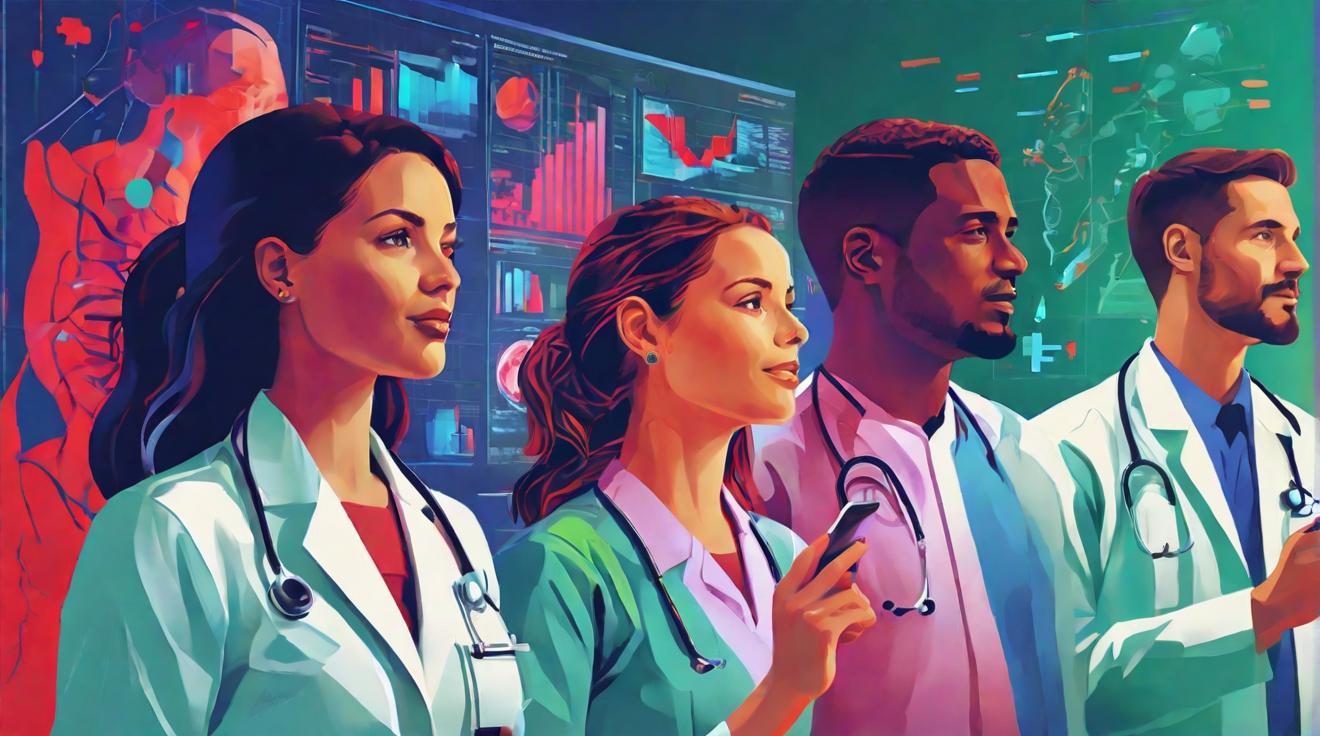Generative AI Models in Healthcare: A New Benchmark Emerges
As generative AI models advance, their introduction into healthcare settings is accompanied by a mix of optimism and concern. Proponents argue that AI has the potential to increase efficiency and uncover valuable insights, while critics warn of inherent flaws and biases that may endanger patient outcomes. The crucial question remains: how can the impact of AI in healthcare be accurately measured?
Enter Hugging Face, an AI innovator, which has recently unveiled a novel benchmarking tool called Open Medical-LLM. Developed in collaboration with Open Life Science AI, the University of Edinburgh’s Natural Language Processing Group, this tool seeks to standardize the evaluation of AI models across a vast array of medically related tasks.
The accuracy of medical LLMs (Large Language Models) is of paramount importance due to the potentially life-threatening implications of errors. Unlike simple chatbots where mistakes are mere nuisances, errors in medical applications can have dire consequences. Therefore, Open Medical-LLM emerges as a critical tool for tracking advancements in medical LLMs prior to their implementation in clinical settings.
Constructed not from scratch but by amalgamating various existing datasets—such as MedQA, PubMedQA, and MedMCQA—Open Medical-LLM is adept at assessing a model's command over general medical knowledge and specialties like anatomy, pharmacology, and genetics. This benchmark includes both multiple choice and open-ended questions sourced from U.S. and Indian medical licensing exams as well as college biology tests.
With Open Medical-LLM, researchers and practitioners can pinpoint the strengths and limitations of different AI approaches, fostering advancements that could enhance patient care.
Hugging Face envisions the benchmark as a robust tool for evaluating healthcare-related generative AI models. Yet, some experts, including Liam McCoy, a neurology resident at the University of Alberta, urge caution. They highlight the vast difference between the controlled environments of medical question-answering and the complexities of real clinical practice. McCoy stresses the importance of recognizing this gap, alongside the unique risks not accounted for by such metrics.
Echoing this sentiment, Hugging Face research scientist Clémentine Fourrier suggests that these benchmarks should serve merely as preliminary guides. A more exhaustive testing phase is essential to understand a model's limits and its practical relevance, Fourrier states, emphasizing that medical models should never directly advise patients without doctor supervision.
It's noteworthy that to date, the U.S. Food and Drug Administration has not approved any AI-related medical devices that employ generative AI. This underscores the challenge of predicting how well these AI tools will perform in real-world healthcare environments.
While Open Medical-LLM offers valuable insights and underscores the limitations of current models in answering basic health questions, it is by no means a replacement for meticulous, real-world testing. The journey of integrating AI into healthcare is complex and demands careful consideration at every step.
Analyst comment
Positive news: The news highlights the introduction of a new benchmarking tool called Open Medical-LLM by Hugging Face, which aims to standardize the evaluation of AI models in healthcare. This tool will help researchers and practitioners pinpoint strengths and limitations of different AI approaches, fostering advancements that could enhance patient care. However, caution is urged by experts, recognizing the gap between controlled environments and real clinical practice. Analyst prediction: Open Medical-LLM will provide valuable insights but further testing is necessary before implementing AI models in real-world healthcare environments.













